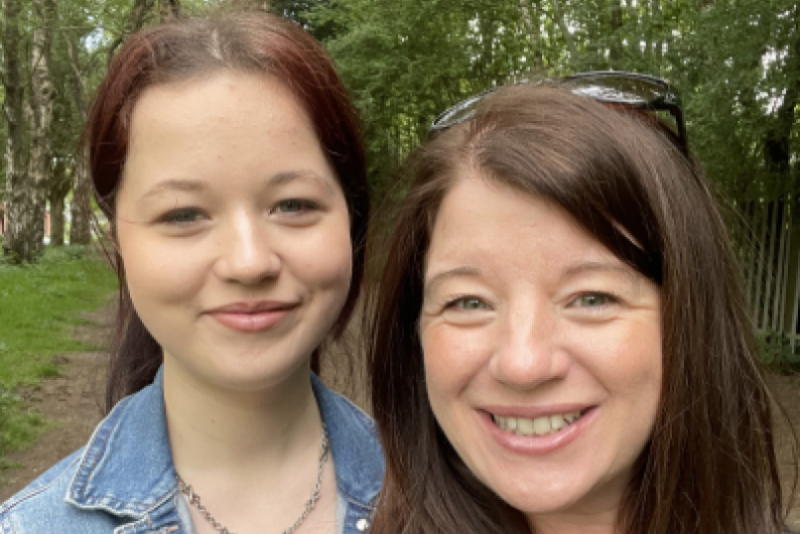19 September 2025

A Nurse whose daughter had a Royal encounter as a result of being born with a cleft palate is supporting a new national research programme.
Ana Hobbs, Paediatric Emergency Nurse at The Royal Wolverhampton NHS Trust, is a Co-Investigator on @Cleft 18-23. This is an National Institute for Health and Care Research (NIHR)-funded research programme investigating outcomes at the end of routine care for young adults born with a cleft lip and/or palate.
Previous studies show young people born with cleft vary in their individual outcomes of appearance, speech, and well-being once they reach adulthood. There is limited information on how they vary, however, and if some groups have better outcomes than others.
The £2 million, five-year trial, which runs to March 2029, aims to identify any unmet needs, and to develop a tool to help address these.
Ana’s daughter Abi Hobbs, aged 14, was born with a soft cleft palate and had surgery at six months old to correct the condition. She will potentially be among the first young adult groups to use tools developed from the research’s findings.
Abi’s cleft was found at birth, the soft palate not being fully formed. This meant there was a hole at the back of her mouth and muscles up to the nose were connected.
This affected feeding effectively, while she had weight concerns, poor hearing and delayed speech development. She had constructive surgery at six months old and speech and language therapy, alongside regular audiology and cranial-facial checks for five years.
Many children born with a cleft will often have multiple surgeries as well as other treatments from Speech and Language Therapists, Dentists, Specialist Nurses, Audiologists and Psychologists as they grow and develop.
“The idea of the trial is to identify what – if anything – cleft patients are still struggling with and to assess any regional differences in their care,” said Ana. “It will also look at the psychological side, and they will be assessed by a Dentist, Audiologist and Speech and Language Therapist.”
Abi regularly supports cleft research and even became an ambassador for The Scar Foundation, advocating for those living with hidden scarring.
As a result she attended St James Palace for afternoon tea with the Countess of Wessex, Sophie, Duchess of Edinburgh, the Foundation’s patron. She has also helped compile videos, quotes, conference presentations and helped shape research.
@Cleft 18-23 has come from the ongoing success of the research programme – The Cleft Collective. This is a national study investigating the biological and environmental causes of cleft, the best treatments for it and the psychological impact on those affected and their families.
Ana is one of the programme’s Patients and Public Involvement representatives who initially helped shape the study by helping the research team to identify the top 10 unanswered questions in clefts.
Ana added: “Abi’s fine about her condition because it is hidden but she finds it frustrating attending lots of appointments. Now the dental work can be more extensive than others her age, as well as still attending general cleft appointments. She is proud that she can help other families though.”
Anyone wishing to join the trial should visit Cleft@18-23 – Initial Contact Form.
For more information please visit the University of Bristol website and search for @cleft 18-23